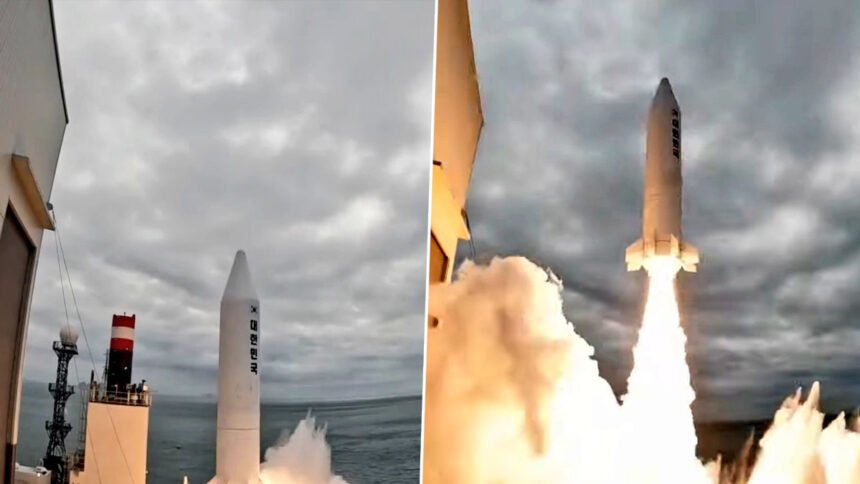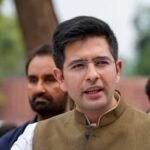South Korea has marked a significant milestone in its space exploration endeavors with the successful test flight of a solid-fuel space rocket near Jeju Island. The rocket, developed by the state-run Agency for Defense Development and produced by Hanwha Systems, represents a leap forward in the nation’s technological capabilities and reinforces its commitment to advancing intelligence, surveillance, and reconnaissance capabilities.
The recent test flight underscores South Korea’s determination to establish itself as a key player in the evolving space race, particularly amid rising tensions with North Korea. The neighboring nation recently launched a military spy satellite, intensifying the competition for supremacy in space-based technologies and capabilities.
The solid-fuel rocket’s successful test flight signifies a substantial stride in South Korea’s space program. Solid-fuel propulsion systems are known for their reliability and quick response times, making them crucial for military applications such as intelligence gathering. The development and deployment of such technology enhance the country’s ability to monitor and secure its borders effectively.
More About South Korea’s Technological Advancement:
One of the key players behind this achievement is the state-run Agency for Defense Development, which has been at the forefront of South Korea’s technological advancements in defense and space exploration. The collaboration with Hanwha Systems, a leading defense contractor, underscores the importance of public-private partnerships in fostering innovation and achieving ambitious goals.
South Korea’s heightened focus on space capabilities also comes in response to the evolving geopolitical landscape. The successful test flight of the solid-fuel rocket provides the nation with a strategic advantage, allowing it to reduce reliance on external intelligence systems, particularly those provided by the United States. This move towards self-reliance in satellite technology signifies South Korea’s commitment to safeguarding its national interests and maintaining a competitive edge in the global arena.
The timing of this achievement is particularly noteworthy given the ongoing competition with North Korea. Both nations are actively pursuing advancements in space technologies, with an emphasis on military applications. South Korea’s successful test flight serves as a demonstration of its commitment to staying ahead in the space race, ensuring it can effectively respond to regional challenges and threats.






